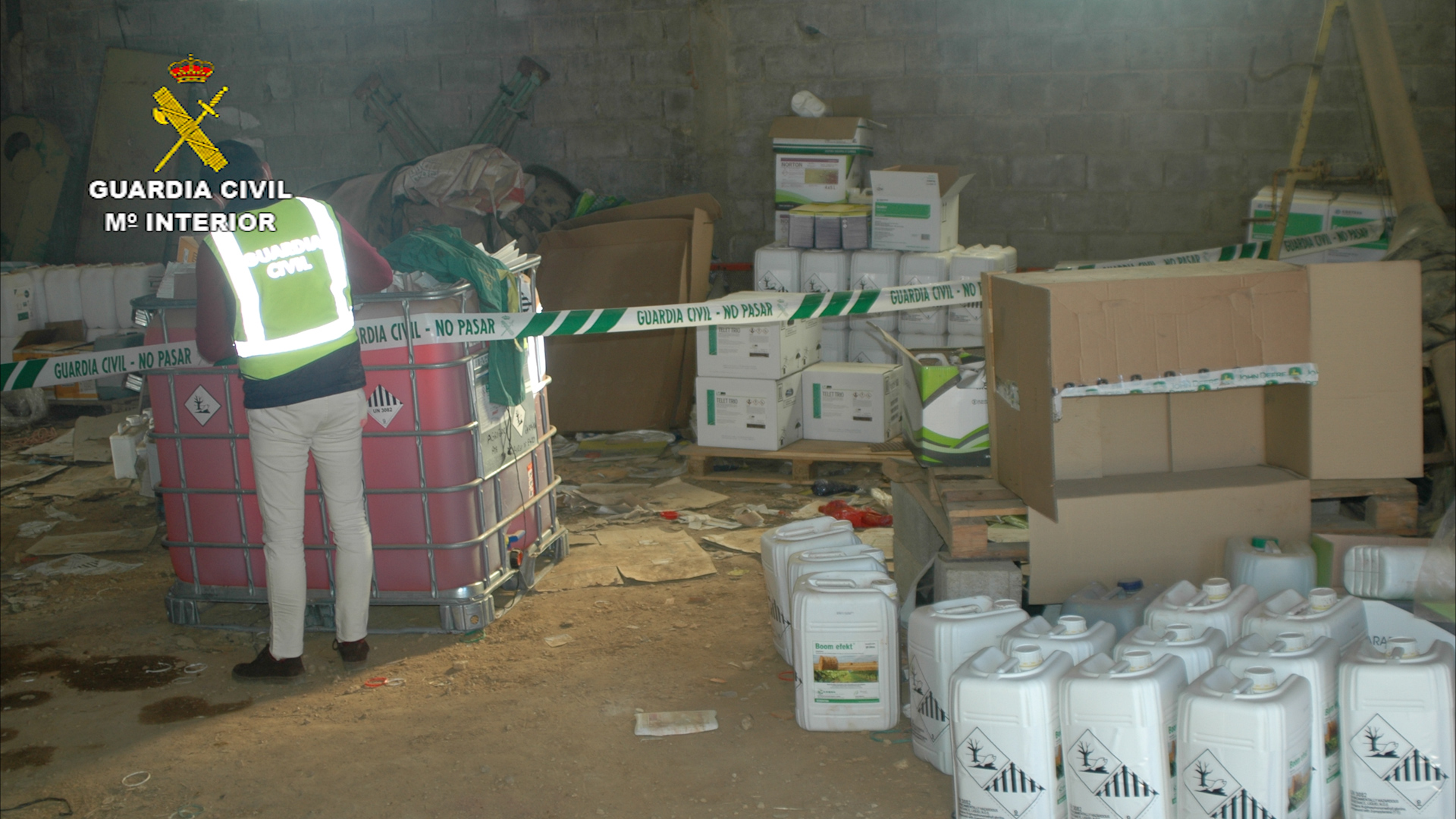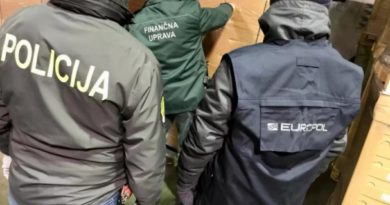The Spanish Civil Guard intervenes more than 23 tons of phytosanitary products harmful to the environment and public health
This operation, developed in coordination with EUROPOL, establishes as its main mission the fight against the irregular manufacture, distribution, trade and use of phytosanitary means used mainly in the agricultural sector, but also in forestry and horticulture. The Civil Guard, within the framework of Operation SILVERAXE VII, has carried out a total of 1,084 inspections, 434 controls carried out and 10 detained and investigated. The alleged commission of 21 criminal offenses has been detected, among which crimes of false documents, crimes related to the market and consumers, crimes against public health and belonging to a criminal group stand out. In addition, 480 administrative infractions have been detected regarding plant health and phytosanitary regulations, on classified activities and on waste and discharges. With all this, a total of 23,653 kg of irregular products have been seized due to the nature of the breaches detected.
The traditional use of plant protection products protects crops and plants against pests, influences plant life processes, preserves plant products and prevents unwanted plant growth. As a result of a good use, an increase in the yield of agriculture is obtained and a good quality of food is ensured.
On the other hand, as chemical compounds that most of them are, they can produce adverse effects on organisms, since an uncontrolled application of these products can not only have unfavorable effects on plant production and its cultivation fields, but can also cause consequences negative effects on public health and the environment (flora, fauna and natural resources), especially when irregular use is made and substances introduced without authorization or control are involved.
Spain, first EU producer of fruit and vegetables
With 22% of European production and ranking fifth worldwide, Spain is the leading EU producer of fruit and vegetables, according to data published by the Ministry of Agriculture, Fisheries and Food. In addition, it heads the list of exporters of the European Union in the fruit and vegetable sector and is one of the top three worldwide together with the US and China, exporting around 50% of its production.
The preponderance of Spain in this sector means that stricter security measures are adopted, since criminal groups and users of these phytosanitary products consciously accept the risks involved in their illegal manufacture and application, without paying attention to the damage they cause with an eye on economic benefit.
Illicit plant protection products
Although the marketing of phytosanitary products is one of the most regulated markets, non-regulated use gives rise to illicit or counterfeit pesticides, also producing economic damage for companies that legally manufacture and/or market these types of products.
In order to market and use plant protection products, a national authorization is required, which entails carrying out a strict risk assessment. All EU countries apply the same evaluation and authorization procedures for these to reach the market. The maximum residue limits (MRL) in food are also defined, since the use of phytosanitary products in crops can lead to the presence of residues in the harvested plant products. These limits are established in order to guarantee that the use of these formulations in crops is safe.
This criminal problem is a scourge as they are illegal copies that are difficult to distinguish due to the high quality of counterfeiting of their distinctive brands and packaging. They lack authorization or are being used for purposes other than those for which they were designed and have not been subjected to the rigorous and exhaustive controls required by the applicable regulations.
Most relevant operations
ALICANTE
For its part, the Alicante Command carried out an investigation that culminated in a total of 7 people and 5 companies being investigated for placing oranges contaminated with phytosanitary products prohibited in the European Union on the national market. It supposes the imputation of crimes against public health, false documents, related to the market and consumers and for belonging to a criminal group.
The citrus fruits, coming from Egypt, contained prohibited active substances and 20 tons of contaminated oranges were intervened. These were acquired in Barcelona by the leader of the criminal organization. In addition, those investigated would have created invoices and sales receipts, all fictitious, trying to convince the authorities that the oranges were going to be withdrawn from the market and that they were going to be destroyed.
As a result of the investigations carried out, records were made in different facilities of fruit companies located in the autonomous communities of the Spanish Levant; one in Barcelona, one in Castellón, two in Valencia, one in Alicante and one in Murcia. This has dismantled the network of companies involved directed by the importer from Alicante.
SORIA
3 people and 2 companies have been investigated for storage and marketing of phytosanitary products without authorization by the UPRONA of the Soria Command, which implies the alleged commission of a crime against public health with harmful substances or chemical products.
During this investigation, it was learned of the existence of two agricultural warehouses in which these products were stored that did not have any permit or authorization, for their subsequent sale and distribution to farmers in the region. Inside these, almost 3,940 liters of chemical products were found stored. In addition, it was found that these warehouses did not meet the conditions required by the regulations governing the storage of chemical products.
Once the actions were completed, the almost 4 tons of products found were immobilized, remaining at the disposal of the competent authority.
Collaborations
This operation is part of the LIFE GUARDIANES DE LA NATURALEZA project. It has had the collaboration of the General Subdirectorate of Plant and Forest Health and Hygiene of the Ministry of Agriculture, Fisheries and Food, the General Directorate of Public Health and Addictions of the Generalitat Valenciana, Food Safety Areas of Alicante, Alzira (Valencia) and Murcia, together with the support of the Central Operational Unit for the Environment (UCOMA) of the SEPRONA Headquarters.




